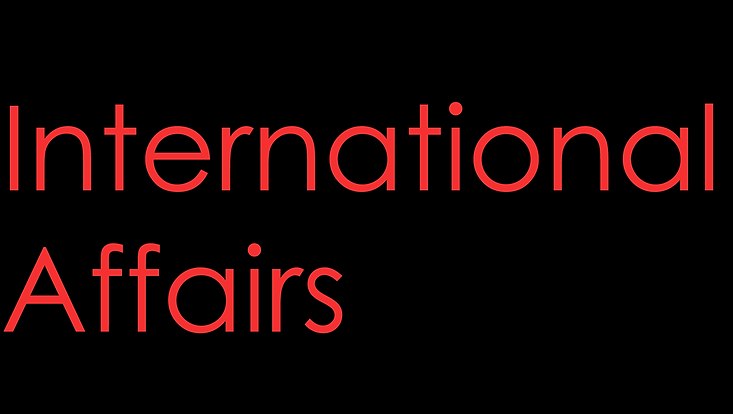New publication by Jacqui True and Antje Wiener on Women, Peace and SecurityArticle is part of the "The dynamics of dissent: when actions are louder than words" International Affairs special issue
9. April 2019

Foto: International Affairs/OUP
Everyone wants (a) peace: the dynamics of rhetoric and practice on ‘Women, Peace and Security’
by Jacqui True and Antje Wiener
This article forms part of the special section of the May 2019 issue of International Affairs on ‘The dynamics of dissent’, guest-edited by Anette Stimmer and Lea Wisken.
‘Women, Peace and Security’ (WPS) is not just any normative agenda: everyone wants a piece of it. WPS is characterized by unprecedented recognition by states at the United Nations Security Council (UNSC) and the presence of multiple stakeholders, including its own transnational NGO network focused on the first Resolution, 1325. The high degree of participation from civil society in framing the norm from the outset—driving their own access to contestation—makes WPS relatively unique among global normative agendas. It is therefore a good case in which to examine the ‘dynamics of dissent’ and test the effects of discursive and behavioural contestation on normative change. The article seeks to advance the thriving literature on the UN WPS agenda and to further develop the exploratory approach to contestation, which evaluates normative progress based on increased access of all those affected by the norm to practices of norm validation. It maps norm contestation at distinct sites, reflecting a sequence of WPS events referenced at the 2015 UNSC open debate on WPS. It evaluates practices of contestation with regard to affected WPS stakeholders' access to political agency and assesses ‘whose practices’ affect norm change and transformative change in the WPS agenda. The authors conclude that the relative access of the wide range of stakeholders to the different repertoires and constellations of contestation affects the outcomes of WPS. They suggest that scholars should evaluate diverse practices of contestation and identify expanding spaces and choices for a variety of local, national and regional perceptions of gender-equal peace and security.
You may also want to visit the Prio Blogs, which features a recent entry by Sara E. Davies and Jacqui True on Pitfalls, Policy, and Promise of the UN's approach to Conflict-Related Sexual Violence and the New Resolution 2467
